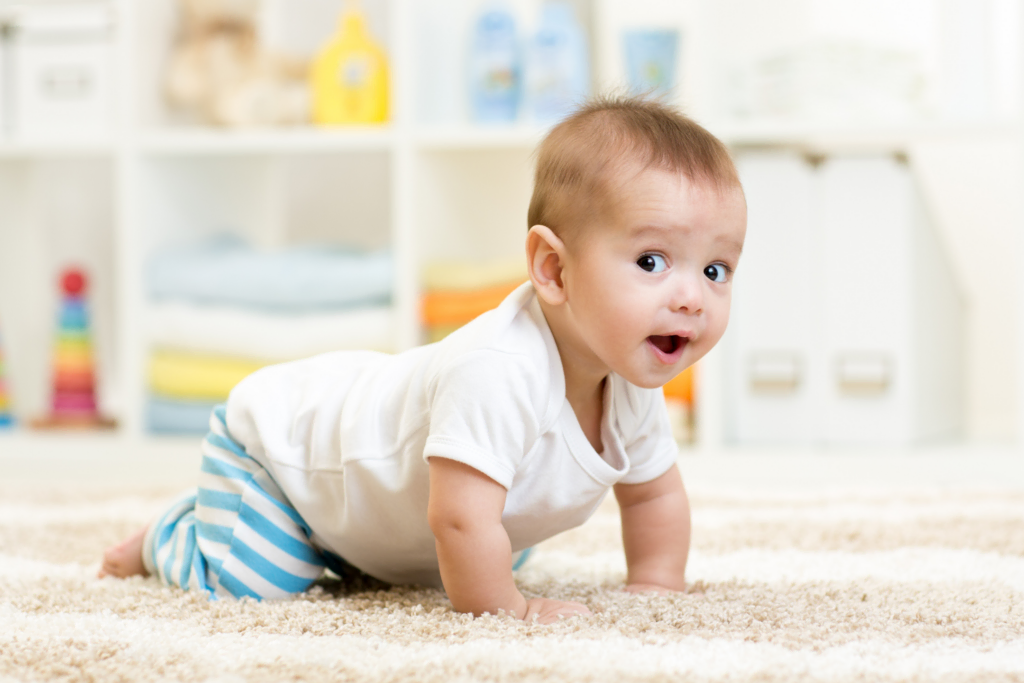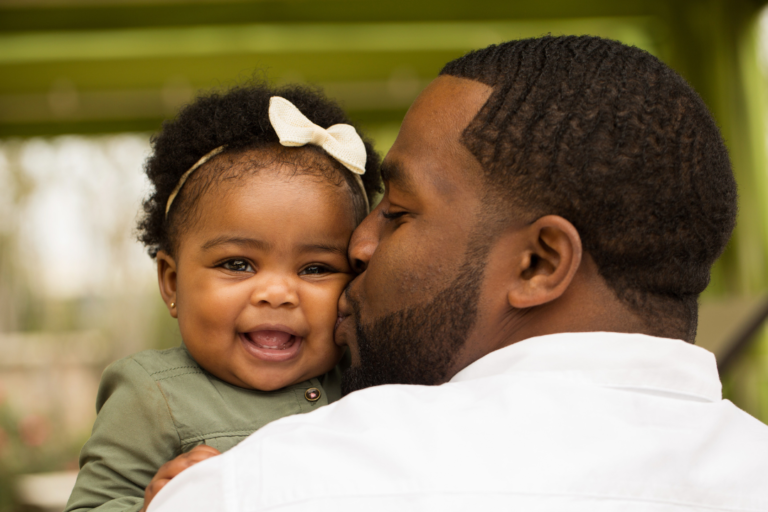At 9 -12 months independence through mobility is high on your baby’s list of things to explore and master. This age is the stage where babies begin to develop new gross motor skills that will take them places and most little ones, can’t wait to get going!
Here are a few tips to help you encourage your little one to develop gross motor skills and exercise their mobility.
General guidelines for developing independence through mobility:
- When you go on outings, talk to your little one about what you see. Highlight things that are moving to help your baby with tracking. Also touch the things you see, such as animals, plants, water, etc.
- Notice what your baby takes an interest in and talk to them about it. Make animal sounds for them and have fun with music.
- Constantly use language to label events, feelings, objects, places, etc. for them.
- The best books for this age are those with components that your little one can feel. Hiding pictures or pop up books are great for your baby to explore.
- Putting things into their mouth or ‘mouthing’ decreases at this stage. Babies will start to actively manipulate and explore the function of an object.
Bath time tips:
- Use bath time to teach your baby the qualities of toys, e.g. heavy and light, sink and float.
- Let your baby stand at the bath when you are undressing them. This encourages cruising.
- Bath time is a great time to work on body image. Say positive things!
- Bath time is also a great time to introduce your baby to new textures. Shaving foam is a good example. Spray it on the wall next to the bath and let your baby play.
Play time tips:
- Babies love to see themselves in the mirror. Point out their body parts in the mirror for them to see.
- Blowing bubbles are such fun for babies. It never gets old and it’s great for developing co-ordination.
- Encourage eye-hand co-ordination by hanging a balloon from a tree. ‘Free’ the balloon and let your little one try to catch it as it floats down slowly. Give your little one time to plan the action. As they get better at catching the balloon, you can upgrade to a ball in a stocking.
- Hiding games are now lots of fun as full object permanence is developed.
- Play ring on a stick games to encourage purposeful release.
- Tactile games are such fun, especially going into summer. Spend time outdoors exploring different textures, sensations and more.
- Unpacking is such fun at this stage. Let them unpack your cupboards (you won’t need to ask twice!) and them teach packing things back.
- Rough and tumble games thrilling at this age and great for giggles and spatial awareness.
- A fun game to play is to crawl over them making funny noises so they are encouraged to crawl fast to get out from under you. This promotes faster crawling.
- Falling into soft surfaces is also such fun.
Playing with toys:
- To encourage fine motor control, have toys with holes in them. You baby’s index finger is now being isolated for pointing and poking.
- Your baby will also start to hold a crayon and draw. Give them paper and crayons to explore this skill.
- Activity centers are nice toys for fine motor control.
- Open and close toys are a great hit at this age.
- Throwing starts at this age. Start with a large ball and grade down to smaller ball. Practice throwing toys into a basket.
- Stacking is also fun, now that release is being developed. Use stacking toys and praise your little one when they get it right.
- Encourage in & out play at this stage with nesting toys and empty tins.
- Babies love moving equipment such as see saws, swings and slides.
- Sitting becomes a transition position. Encourage movement from this position by placing toys just out of reach.
Encouraging gross motor skills:
- Crawling is very important. Make obstacle courses with cushions and tables and baskets to crawl in, out and under. Use push/moving toys to encourage crawling.
- Teach your baby to go down stairs backwards.
- Use any old boxes to make tunnels and hidey holes which they love to explore.
- Encourage standing and cruising by placing objects on chest height surfaces. Also let them push block trolleys.
- To develop cruising, place furniture close together. Then as your baby becomes better at cruising, start to move the furniture a bit further away.
- To encourage walking as they get closer to a year old, do “1,2,3, wee…” and let them walk holding onto your hands.
Read more about the developmental benefits of physical activity for your baby. Get a daily play tip for your baby’s age and development stage from Parent Sense – the all-in-one baby app that takes the guesswork out of parenting.




